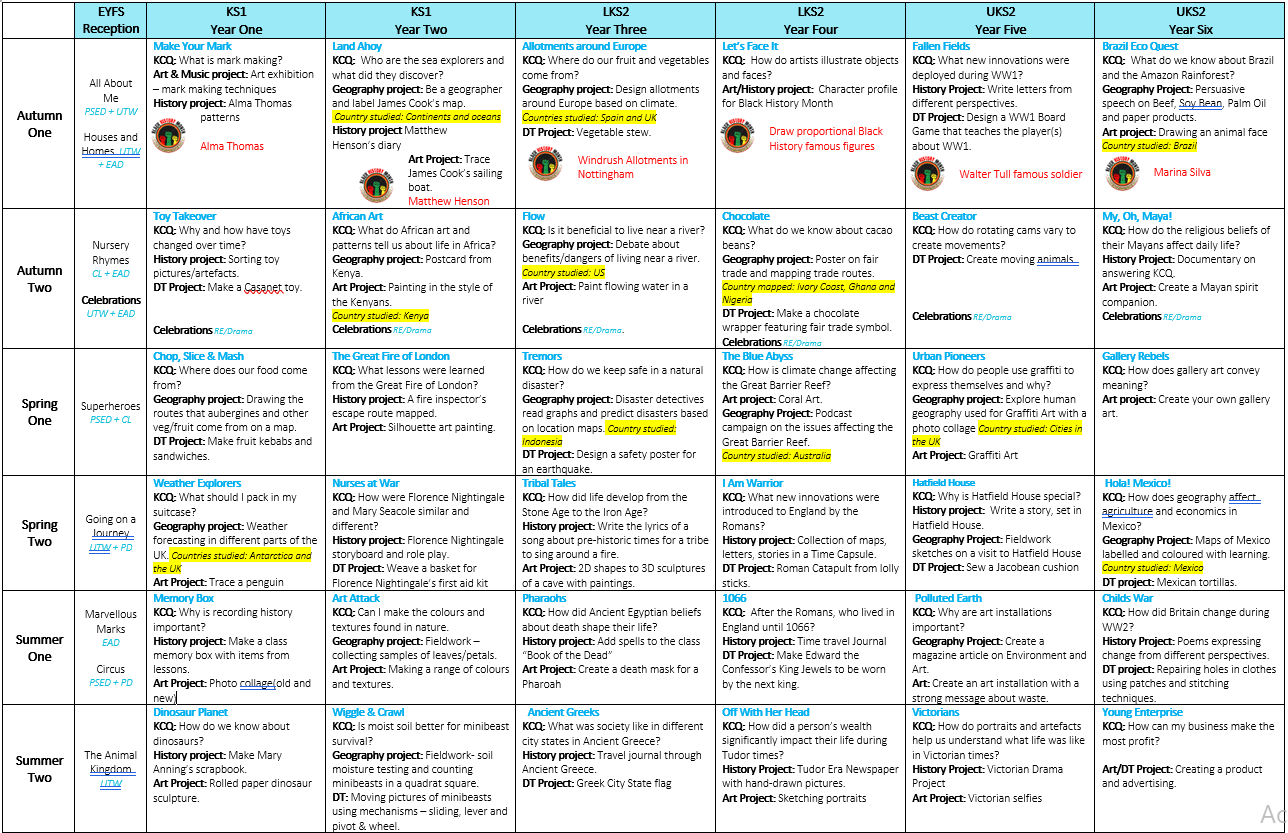Project
Project at HCFS
Intent
At HCFS, our half-termly project lessons are weaved together; each lesson builds up the knowledge and skills children need to answer a single key concept question (KCQ). Within a project, skills and knowledge from history/geography are combined with art/design technology wherever possible, to facilitate memorable, experiential cross-curricular learning which facilitate the completion of an engaging end-point project. In most cases, end-point projects will be shared with an audience to give pupils a chance to share their knowledge and providing opportunities for expressing cultural capital. There are a range of end-point projects that ensure inclusive learning such as a documentary on the Mayans, a podcast on the Great Barrier Reef or an art gallery to share with parents.
Implementation
Projects lessons are creatively designed to include engaging multimedia sources for learning; this may include use of 3D modelling, virtual tours, videos and photos. A story or information book is embedded in our plans to enhance literacy skills and prompt discussion. Lessons stimulate children to use higher level thinking skills to critically analyse, create, apply and evaluate their learning. Group work is often a feature of our projects which provides learners with an opportunity to practice communication whilst learning equity and collaboration. Opportunities for extended writing are embedded into our planning. During the implementation phase, teachers are on-hand to facilitate groups and correct misunderstandings. Wherever possible, our projects are enriched with special visitors to the school and relevant trips.
Impact
Our projects encourage life-long learning by inspiring pupils to look at the world around us from different perspectives. Our projects feature the views and experiences of famous historians, geographers, artists and engineers. Learners begin to look at problems as ‘projects’ and are more inclined to use skills from a variety of subject areas to generate ideas and solutions. Growth mindset is encouraged in project lessons as skills of application and evaluation are embedded into our plans; this impacts learning across the curriculum as children begin to question their own work, making changes to improve.
Chldren use self-assessment against success criteria which are displayed each lesson. The end-point projects are a means of summative assessment. At the end of each project, key concept maps enable learners to self-assess their knowledge against what they knew at the start of the project. Pupils feel a sense of pride when sharing their end-point project outcomes and our ultimate aim is to make learning experiences in history, geography, art and design technology fun and memorable.

